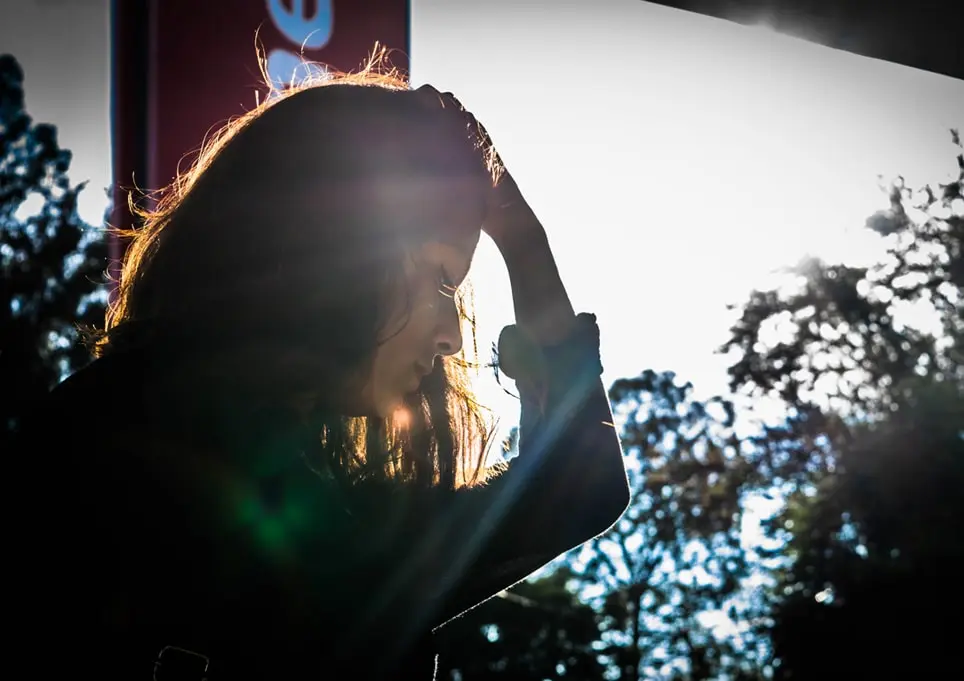Childhood trauma can profoundly impact a person’s life, and unresolved complex childhood trauma can be particularly devastating. Symptoms of this type of trauma can include:
- Difficulty regulating emotions
- A sense of disconnection from others
- A persistent feeling of being unsafe
Understanding complex childhood trauma is crucial for those who have experienced it and those who work with trauma survivors. Trauma’s journey towards resolution is complex, influenced by factors like its severity, the age when experienced, and the presence of support and resources. In this article, we will delve into the symptoms of complex childhood trauma and examine the reasons behind the enduring impact of some traumas.
Here Six Symptoms of Complex Childhood Trauma
1. Emotional Symptoms
When complex childhood traumas are left unresolved, they often manifest as intense emotional symptoms in adulthood. The overwhelming feelings of sadness or despair are at the heart of these symptoms. This isn’t the occasional melancholy we all feel; it’s a profound and pervasive sorrow that can darken the brightest moments. Such emotional scars often result in a deep-seated difficulty in trusting others. The defenses built up during traumatic childhoods can make genuine connections challenging, shadowed by past betrayals.
Coupled with this mistrust is an intense fear of abandonment. People affected may live in perpetual anxiety, fearing that those close to them will leave or let them down, mirroring past rejections or neglect. Furthermore, these individuals often grapple with persistent feelings of shame and guilt, even when they are not at fault. Such feelings are more than just remnants of past incidents; they’re the emotional echoes of traumatic events that continue to resonate, seeking acknowledgment and healing.
2. Behavioral Symptoms
The lingering effects of unresolved complex childhood trauma don’t just manifest emotionally but are vividly seen in an individual’s behavior as well. One of the most evident signs is the tendency towards self-destructive behaviors, where individuals might sabotage their own success or engage in risky activities, acting as a silent scream for relief or a reflection of their internal chaos. These internal struggles can also erupt externally, leading to aggressive or violent outbursts. Such displays are not just expressions of anger but a deeper cry of pain resulting from the trauma they’ve internalized.
Alongside these overt signs, there’s a subtler but equally concerning pattern of isolation and withdrawal from social settings. The trauma survivors might pull away from friends, family, or community, building walls to protect themselves from potential hurt. This isolation often intertwines with chronic relationship issues, where past traumas cast shadows on new relationships, making trust, communication, and intimacy challenging hurdles to overcome.
3. Cognitive Symptoms
While trauma often stirs profound emotional and behavioral responses, its imprint on cognition is equally significant. A hallmark of this cognitive disturbance is the presence of dissociative symptoms and memory gaps. Individuals may detach from their immediate environment, feel like an observer of their own life, or struggle with fragmented memories, especially concerning traumatic events. An overwhelming negative self-perception further exemplifies this cognitive dissonance. The internal narrative becomes dominated by self-deprecation, making individuals view themselves through a lens clouded by the trauma.
As the mind tries to process these experiences, recurring nightmares and flashbacks can serve as haunting reminders of the past, triggering distress and anxiety in the present. These disturbances culminate in practical challenges, such as difficulty concentrating and making decisions. Tasks that might seem routine to others can become monumental challenges as the mind remains ensnared by past traumas.
4. Physical Symptoms
It’s a common misconception that the scars of childhood traumas are confined solely to the mind. In reality, the body also bears testimony to these traumatic experiences. One of the most perplexing presentations is unexplained physical pain. Not tied to any discernible medical condition, these aches can be the body’s way of communicating unresolved distress.
Accompanying these pains, victims often report chronic fatigue and sleep disturbances, a tangible outcome of the internal turmoil disrupting their rest and sapping their energy. This state of heightened alertness is further showcased by a heightened startle response, where individuals might react sharply to sudden noises or movements, a physical manifestation of their deeply ingrained fears and anxieties. The stress and anxiety stemming from trauma can also lead to gastrointestinal issues, from sporadic stomach aches to chronic disorders, a bodily representation of the emotional pain that remains unprocessed.
5. Psychological Impact
The intricate weave of the human psyche can become frayed and distorted by the haunting specters of unresolved childhood traumas. One of the most dire repercussions is the development of mental health disorders. Anxiety disorders, depression, post-traumatic stress disorder, and borderline personality disorder are just a few conditions that can emerge as aftershocks of traumatic experiences. These inner disturbances can push individuals towards substance abuse and dependence, a desperate attempt to numb the pain or escape the relentless memories.
Tragically, for some, the burden becomes so unbearable that they contemplate or engage in self-harm and suicidal ideations, seeing it as a means to end their suffering. Intertwined with these symptoms is a persistent sense of detachment from reality. This is not merely an occasional daydream; it’s a profound disconnection, where the individual feels like they’re floating through life, never truly grounded or present, a protective mechanism against the overwhelming intensity of their traumatic memories.
6. Impact on Relationships
The tendrils of unresolved childhood trauma reach far and wide, profoundly affecting how survivors navigate their relationships. A predominant challenge is the innate fear of intimacy and vulnerability. Haunted by past betrayals or the memory of hurt, survivors often shield their true selves, fearing that showing vulnerability might lead to pain or rejection. This guarded approach becomes even more pronounced when survivors become parents as they grapple with parenting challenges. The fear of inadvertently harming their offspring or struggling to provide the emotional support they lack can be overwhelming.
Compounding these issues, survivors often find themselves struggling with setting boundaries. Determining what’s acceptable in relationships becomes a maze, often leading to excessive permissiveness or rigid walls. Simultaneously, beneath this tumultuous exterior lies a deep-seated constant need for validation. Yearning for the acceptance and love they might have missed in childhood, survivors can become overly reliant on external affirmation, making genuine self-worth elusive.
Therapy for Complex Childhood Trauma at The Beverly Hills Therapy Group
Confronting and healing from unresolved complex childhood trauma is courageous, and you don’t have to do it alone. At The Beverly Hills Therapy Group, you will find a compassionate and skilled team of therapists equipped with evidence-based approaches explicitly tailored to the intricate issues arising from such traumas. Our nurturing environment is designed to be a sanctuary where survivors can safely explore their pain, understand its impact, and learn coping mechanisms to foster a healthier life ahead. If you or someone you know is struggling with the lingering effects of complex childhood trauma, don’t wait another day. Make the brave decision to seek help and take the first step towards a brighter, more fulfilling future. Reach out to The Beverly Hills Therapy Group today and let the journey towards healing begin.






